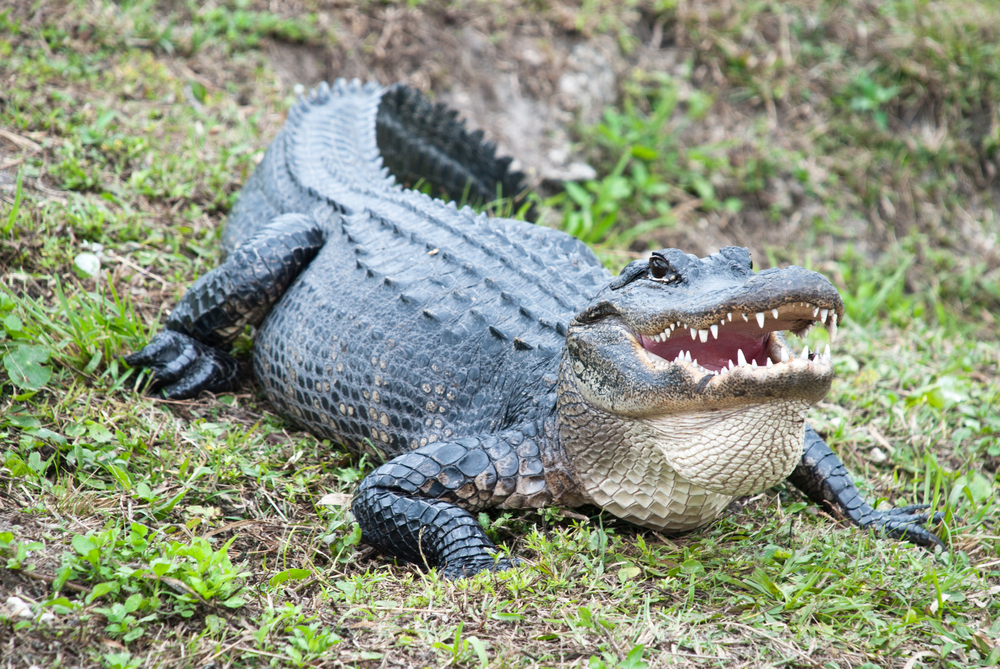
Five alligators were captured and killed in the immediate aftermath of a tragic death involving a two-year-old boy at Walt Disney World in Orlando, Florida, it has been revealed.
According to reports, at around 9pm on Tuesday evening, the boy—who has been named as Lane Graves—waded into about a foot of water at the edge of the Seven Seas Lagoon while the family were enjoying an outdoor movie night at the Grand Floridian complex. When the alligator suddenly emerged from the water and grabbed the child, horrified witnesses, including both the boy’s distraught parents, attempted to save him. The father jumped in and tried to pry the animal’s mouth open, but it was too late and Lane was taken beneath the water.
Several gators were killed in an attempt to find the culprit and recover the child’s remains. However, the boy’s body was subsequently discovered by divers the following day. With only a few puncture marks evident, the cause of his death is thought to be drowning during or as result of the attack. ‘There is likely no question in my mind that the child was drowned by the alligator,’ Sheriff Jerry Demings told the media.
Amid a debate about liability, Disney quickly closed all the beaches around the man-made lagoon, built on top of natural wetlands, which is home to several of the reptiles and features numerous ‘No Swimming’ signs. The company also issued a statement saying everyone at the company was ‘devastated’ by the ‘tragic accident’.
‘We’re going to make certain that we have the alligator that was involved, and that we remove it from the lake,’ said Florida Fish and Wildlife Conservation Commission Executive Director Nick Wiley. ‘Forensics teams will try to determine whether one of the alligators already taken from the lake is the one that dragged off the boy,’ he continued. ‘If not, the search for alligators in the lake will continue.’
Like many predatory reptiles, alligators are opportunistic hunters, and while attacks on humans are rare, the animals are much more likely to attempt to take a child over an adult. ‘The fact that the body was found intact makes sense,’ animal expert and nature conservationist Jeff Corwin, who hosts the TV show Ocean Mysteries, told CNN. ‘That gator came in, grabbed that boy, pulled him, the dad startled that gator, the gator let him go and then the boy drowned,’ he continued.
Corwin described the attack to the BBC as an ‘anomaly’, saying the parents were blameless in what was a very ‘unnatural event’, during which the alligator took advantage of a ‘small-sized body’. Statistics released by the Florida Fish and Wildlife Conservation Commission in April 2016 appear to back this up. The figures reveal that 257 people have been left requiring medical care as a result of unprovoked alligator attacks in Florida since 1948, with the animals causing 23 recorded deaths, eight of which have involved children.
Alligators differ from crocodiles in that they have more triangular-shaped heads with broader and blunter snouts, and their lower fourth tooth does not protrude when the mouth is closed as it does in their close cousins. There are two species of alligator in the world, one found in China and the larger American alligator, which can regularly reach 10ft in length and resides in swamps and slow-moving streams from North Carolina to Florida, and all along the Gulf Coast.
Before commercial hunting for gator leather threatened the very existence of the US population, the animals often reached 18ft in length, but sightings of such behemoth beasts are unheard of now. Alligators are still farmed for their leather, but they are now legally protected in the wild, where they have bounced back big time. Over a million of the animals now live in Florida, across all 67 counties, and they’re also found in Louisiana, Mississippi and North Carolina.
According to the Specialist Crocodile Group of the International Union for Conservation of Nature (IUCN), of the 23 crocodilian species in the world, eight are known to actively attack humans, with American alligators being one of these ‘aggressive’ species. However, in reality, incidents are incredibly rare, and only 24 deaths have been caused by alligators in the last 81 years across the entire US. When attacks do happen, they are very rarely fatal, especially when compared to the fatality among of victims of saltwater crocodiles in Australia (25–50%), and Africa’s fearsome Nile crocodile (63%).
The database CrocBITE, which aims to record all crocodile attacks around the world, estimates that around 1,000 people die each year as a result of crocodile attacks, with the majority happening in Africa.
